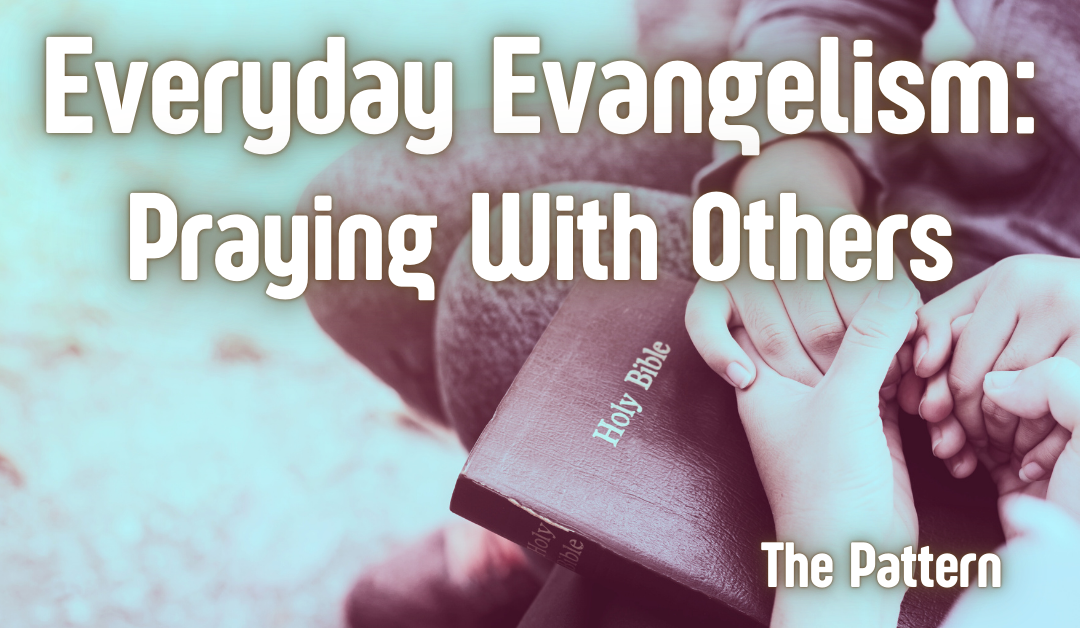
Walking With Jesus Part 7: TESTIMONY (Mark 1:28-34)
“News about him spread quickly over the whole region of Galilee.”
Mark 1:28, NIV
After the cleansing of the man with an unclean spirit in the synagogue, we see that news about Jesus spread like wildfire.
Jesus and His handful of disciples left the synagogue and went to the home of Simon and Andrew.
Simon’s mother-in-law was ill and in bed with a fever.
The Bible says that Jesus went to her, took her by the hand and helped her up – and out of her illness.
Thus far, in Jesus’ public ministry, we see God taking action – Jesus demonstrating His authority as the Hand of God stretched forth – against impure spirits (that which ails the mind and soul) as well as sickness (that which ails the body) – bringing not only relief, but also restoration.
This has always been the Will of God – that He might see His children restored – in mind, body and spirit!
Jesus came to free us from the shackles that hold us back from both wholeness and holiness.
We see that after the healing of Simon’s mother-in-law, the whole town gathered at her door to see, hear and meet Jesus. The Bible says “that evening, after sunset…” – in other words, some time had passed. This time was certainly enough for people to have heard the testimony of the man from the synagogue, as well as the news about Simon’s mother-in-law.
The whole town brought their sick and tormented to Jesus.
This is the power of testimony right here.
Speaking from my own experience, I have seen Jesus move as my healer, my protector, my provider – He has been there in the valley and on the mountaintop.
I have more than 20 years of testimonies in my pocket. He has never let me down.
And I am sure that, no matter how long you have known and walked with Jesus, you also have testimonies of His goodness, His mercy and His grace. I am sure that, if you have in any way or form encountered Jesus, you will have a story to tell – a story of redemption and restoration – even if the story is still a work in progress.
This testimony has the power to bring others to Jesus.
The news about Jesus didn’t spread because of some massive marketing campaign or targeted ads on social media – it didn’t go viral because of well-produced content or billboards next to the side of the road – the news about Jesus spread by word of mouth.
One person telling the next what they had seen, heard or experienced.
If the Gospel is the light of the world – that original spark or flame – shouldn’t we all, like candles be set alight to show the way to the Cross of Christ in a world darkened by depravity and hopelessness?
Let your little light shine.
The testimonies of one or two people in the first chapter of Mark – the man in the synagogue and Simon’s mother-in-law – led a whole town to Jesus.
Imagine if we all – all of us who believe, all of us who have seen God move, who have encountered Jesus – imagine if we all let our light shine! Imagine if we would all share our stories with who-ever might be willing to hear – we could turn the world upside down and right side up for Jesus!
Perhaps we could take action today – in this very simple way – and tell someone about how God took action on our behalf today.
Reflect:
1. Can you think of a way in which God has taken action in your life? What did He do for you? Now think of the people you know. Is there anyone going through a similar situation or circumstance? How can you share the good news of Jesus with them today?
2. The Bible compares the Kingdom of God to a mustard seed. How can the mustard seed of your testimony become a plantation unto the Lord? Is there a specific type of person who should hear your testimony? Where will you find them?
Prayer: Lord, give me opportunities to share my story with others today. Give me boldness to speak of the wonders you have done in my life. Remind me, oh Lord, of the blessings you have poured out in my life, and help me remember them out loud. You have saved me from eternal demise. Help me today to share my story of redemption and restoration, the story of how Your grace rewrote my life – with someone who needs it. Let my testimony be like a mustard seed which bears much fruit. In Jesus name. Amen.




